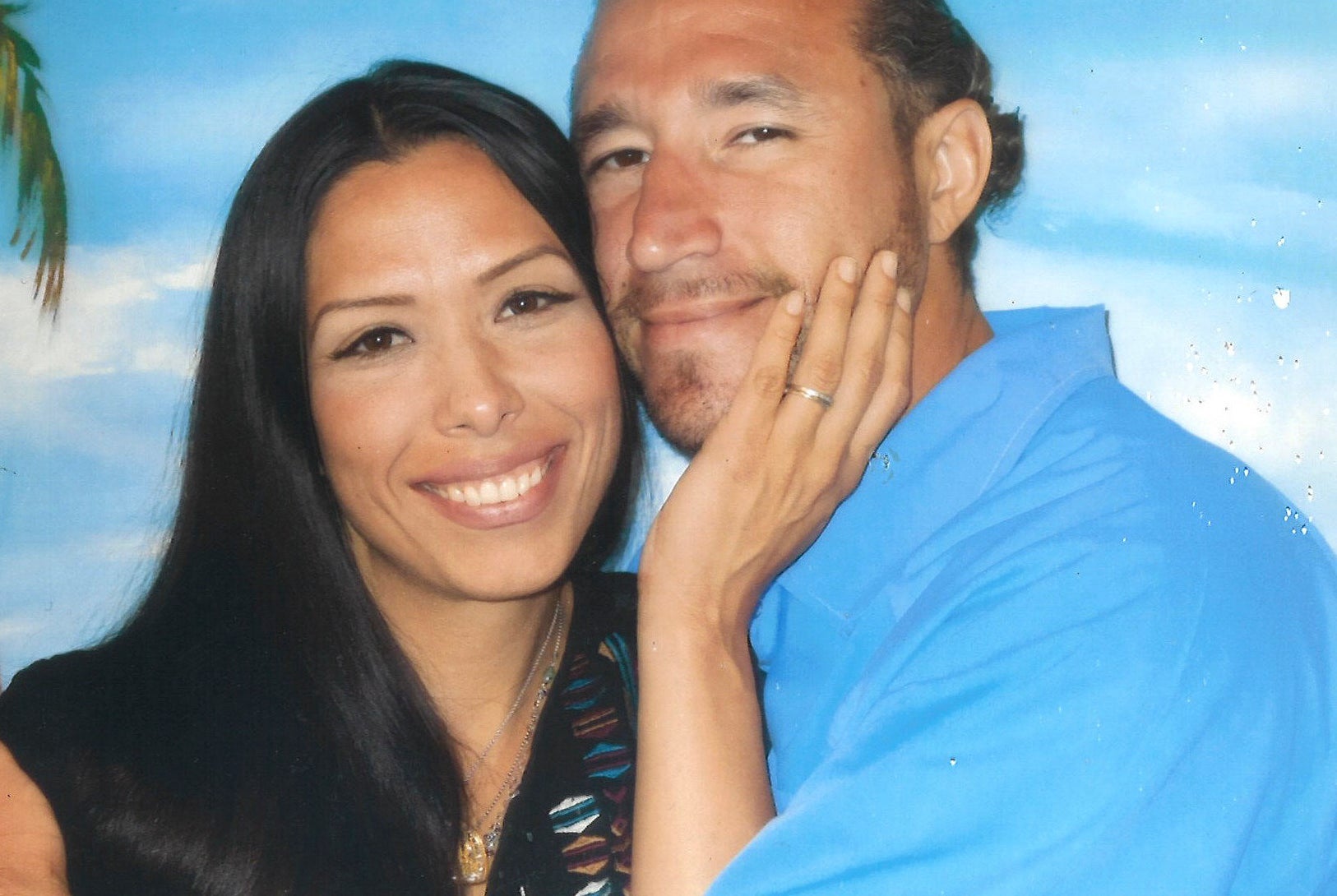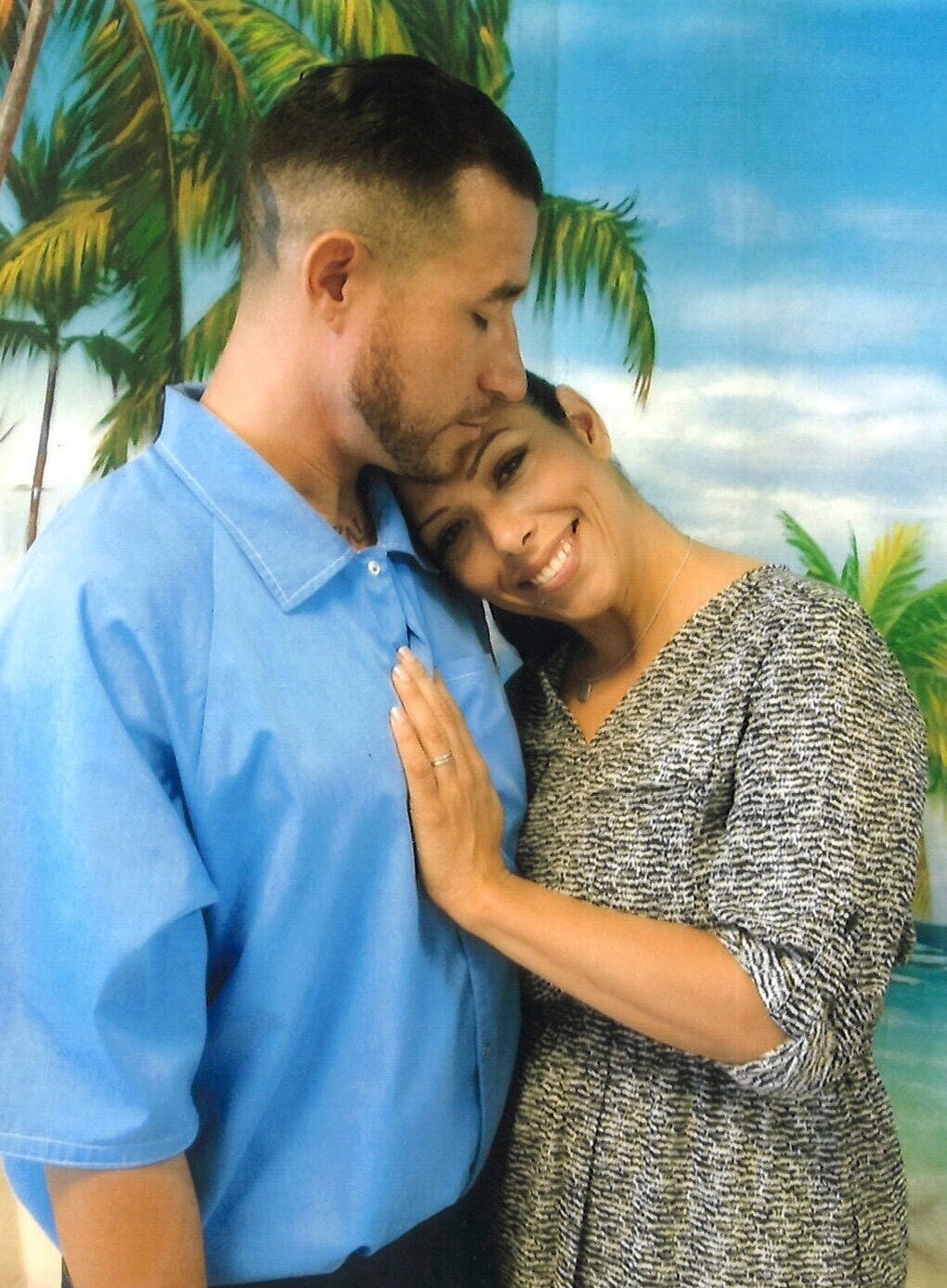Wife of inmate wins millions in settlement after claims she was sexually violated during strip search
She was even told she had to pay $5,000 for services

Your support helps us to tell the story
From reproductive rights to climate change to Big Tech, The Independent is on the ground when the story is developing. Whether it's investigating the financials of Elon Musk's pro-Trump PAC or producing our latest documentary, 'The A Word', which shines a light on the American women fighting for reproductive rights, we know how important it is to parse out the facts from the messaging.
At such a critical moment in US history, we need reporters on the ground. Your donation allows us to keep sending journalists to speak to both sides of the story.
The Independent is trusted by Americans across the entire political spectrum. And unlike many other quality news outlets, we choose not to lock Americans out of our reporting and analysis with paywalls. We believe quality journalism should be available to everyone, paid for by those who can afford it.
Your support makes all the difference.The wife of an inmate in a Californian prison will receive $5.6 million after being sexually violated during a strip search when she tried to visit her husband, her attorneys said on Monday.
After travelling four hours to see her husband at a correctional facility in Tehachapi, California, Christina Cardenas was subject to a strip search by prison officials, drug and pregnancy tests, X-ray and CT scans at a hospital, and another strip search by a male doctor who sexually violated her, a lawsuit said.
“My motivation in pursuing this lawsuit was to ensure that others do not have to endure the same egregious offenses that I experienced,” Cardenas said.
Of the $5.6 million settlement, the California Department of Corrections and Rehabilitation will pay $3.6 million and the rest will be paid by the other defendants, which include two correctional officers, a doctor, and the Adventist Health Tehachapi Valley hospital.
Prison officials conducted their searches on the basis of a warrant, which said a strip search could only be conducted if an X-ray found any foreign objects that could be contraband in Cardenas' body, her attorneys said. However, neither the X-ray or CT scan found any evidence of such.
She was also put in handcuffs in a “humiliating perp walk” while being taken to and from the hospital, and denied water or use of a bathroom during the majority of the search process.
She was told she had to pay for the hospital's services and later received invoices for a combined total of more than $5,000. Despite no contraband being found in any of her belongings or her body, Cardenas was denied her visit with her husband.

One of the prison officials asked her, “Why do you visit, Christina? You don’t have to visit. It’s a choice, and this is part of visiting," according to Cardenas.
“We believe the unknown officer’s statement was a form of intimidation used to dismiss Christina’s right to visit her lawful husband during the course of his incarceration,” Cardenas' attorney Gloria Allred said.
Cardenas also had to undergo a strip search during a previous visit to marry her husband, and continued to experience difficulties during her visits to him, though not to the same extent as the September 6, 2019 incident. Her husband remains in custody today.
The settlement also requires the California Department of Corrections and Rehabilitation to distribute a policy memorandum to employees that better protects the rights of visitors who have to undergo strip searches. This includes ensuring the search warrant is read and understood by the visitor, that the visitor receives a copy of the warrant, that the scope of the warrant is read and understood by everyone involved, and the scope of the warrant is not exceeded.
Cardenas is not alone in what she experienced from correctional officers, Allred said, and hopes this case will help protect the rights of spouses and family members who visit their loved ones in prison.
California prisons have faced an ongoing problem of sexual abuse and misconduct, with the the U.S. Justice Department announcing it had opened an investigation into allegations that correctional officers systematically sexually abused incarcerated women at two state-run California prisons.
Earlier this year the federal Bureau of Prisons announced it will close a women’s prison in Northern California known as the “rape club” after an Associated Press investigation exposed rampant sexual abuse by correctional officers.